Pulitzer Traveling Fellowship Recipient Rita Omokha, ‘20 M.S., on Documenting Marginalized Voices During America’s Moment of Reckoning, Part 1
Spurred by the killing of George Floyd, Pulitzer Traveling Fellowship recipient Rita Omokha embarked on a cross-country mission to document America's marginalized voices. In this Q&A, she shares her story of reporting during a year defined by the pandemic and protests against racial injustice.
Rita Omokha spent 32 days traveling to 30 states for the "America Redefined" series published by ELLE. This interview was conducted in December 2020.
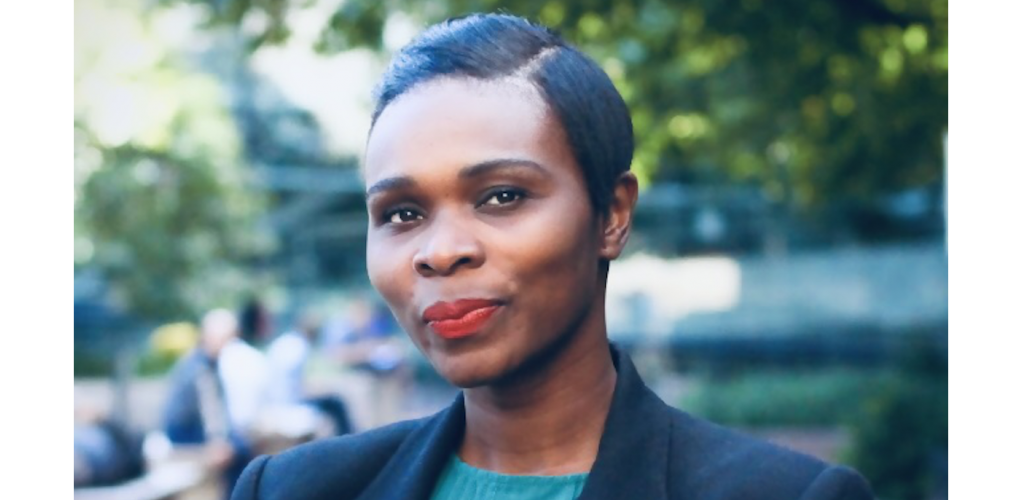
On May 20, 2020, M.S. student Rita Omokha graduated top of her class from the J-School, receiving the Pulitzer Traveling Fellowship (link is external), The Campbell Award (link is external), and the Lynton Foundation Award in book writing. Five days later, George Floyd was killed when a former Minneapolis police officer kneeled on his neck for more than eight minutes. The pain of watching that brutal footage (link is external) would set Omokha on a unique reporting journey using her fellowship funds to travel to 30 states in 32 days across September and October on a mission to document voices of marginalized Americans during a year defined by the pandemic and protests against racial injustice.
The result is “America Redefined (link is external),” a multimedia first-person immersive series published today by ELLE. Through 10 feature-length sections and dispatches dispersed throughout the collection of writings, Omokha explores the racial experiences and attitudes of those she met across America. In the Q&A below, she shares what she uncovered as she interviewed unheard voices and communities of color across the United States and the moment she describes as a "reckoning within myself."
Q: You received the Pulitzer Traveling Fellowship at graduation, just five days before the killing of George Floyd. What was the journey to developing this project?
Watching that video of George Floyd being murdered broke me. It was so horrific. I had never wept for a stranger before that night. It’s a shame that this is the norm: Black people, especially Black men (link is external), are disproportionately killed at the hands of police. I spent the following days talking to my family and friends. Most of those conversations were consolatory in nature: How are you feeling? What are you doing to cope? They served as a bigger discussion on who we are as Black people in this country.
I kept internalizing: Who am I right now in America? What is my experience as a Black immigrant woman? I wanted to expand that dialogue outside of my family, outside of my friends, to see what the others across the nation were feeling at this crucial time in our country’s history, especially people of color, people from marginalized backgrounds. How does it feel to be us — the collective us — right now? What are people’s racial experiences? What does 2020 mean for us? I wanted to travel to as many states as possible, talk to as many people as possible, and sort of do an anthropological study of what it was like to be the other in America.
I kept internalizing: 'Who am I right now in America? What is my experience as a Black immigrant woman?' I wanted to expand that dialogue to see what the others across the nation were feeling at this crucial time in our country's history.
Q: In total, you visited 30 states. Tell us about your strategy and the types of people you interviewed.
I had a wishlist of sorts, knowing that I was especially interested in the racial experiences of different people from communities of color. So the list would drill down to something along the lines of: A Black immigrant woman who runs a small business? Then it was just a matter of approach. Some days I did three states in one day, spending three to four hours at each stop going to parks, diners, coffee shops. As I left each stop, my mind would be in overdrive: Was that enough time? Did I ask all the right questions? When I’d arrive at the next location, I would get into my routine of first recording a voice memo on how I was feeling and what stood out from the last stop.
A concern I had was that white people wouldn’t open up to me about race. But they did. I think in part because I was transparent about my goal upfront: I wanted to understand everyone's racial experiences and perspectives. The white majority is critical to that dialogue. Extremists, too. I’d usually start with something general: Tell me about your year. How has it been for you and your family with the pandemic, with COVID? I’d feel it out; it’s about having a conversation while being ultra-conscious and sensitive. I would then segue to George Floyd, Breonna Taylor, or Jacob Blake — this gave me a pulse on how the rest of the conversation on race could progress.
Image Carousel with 3 slides
A carousel is a rotating set of images. Use the previous and next buttons to change the displayed slide
-
Slide 1: Ebtehal Badawi, Pittsburgh / Credit: Rita Omokha
-
Slide 2: Employees of Francisco's Restaurant, Rochester, Minn. / Credit: Rita Omokha
-
Slide 3: Miss Navajo Nation Shaandiin Parrish, Navajo Nation, Ariz. / Credit: Rita Omokha
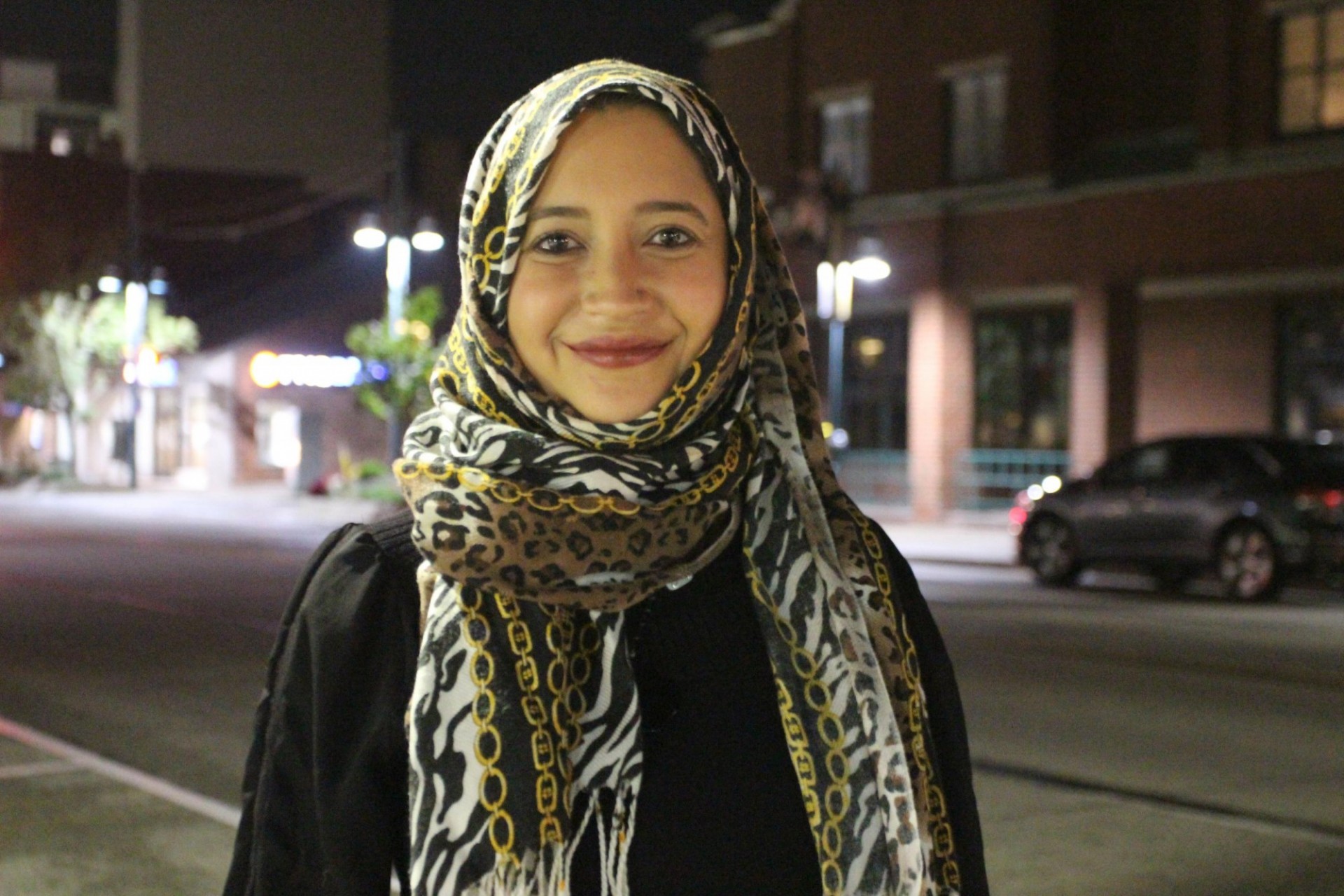
Ebtehal Badawi, Pittsburgh / Credit: Rita Omokha
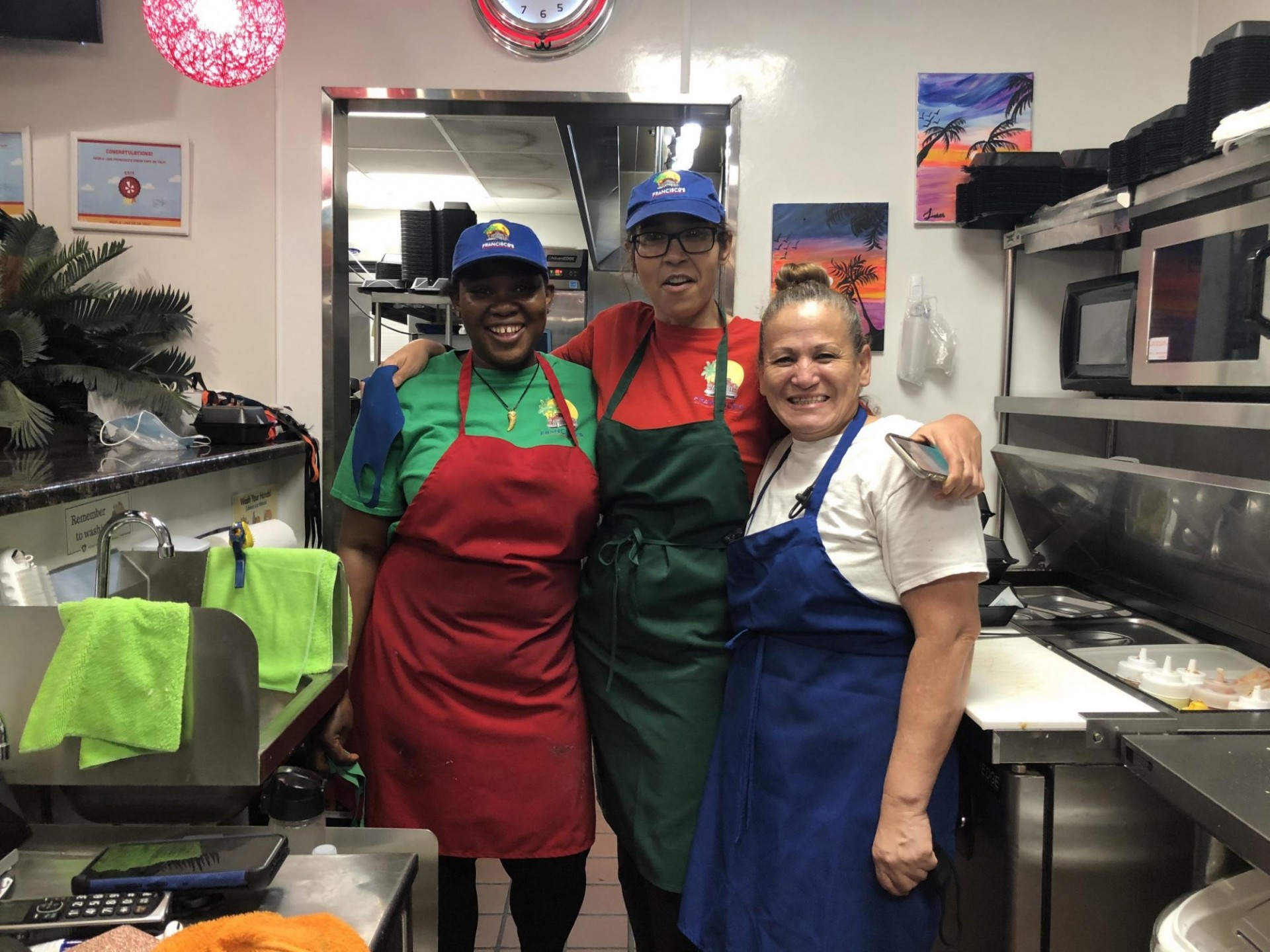
Employees of Francisco's Restaurant, Rochester, Minn. / Credit: Rita Omokha
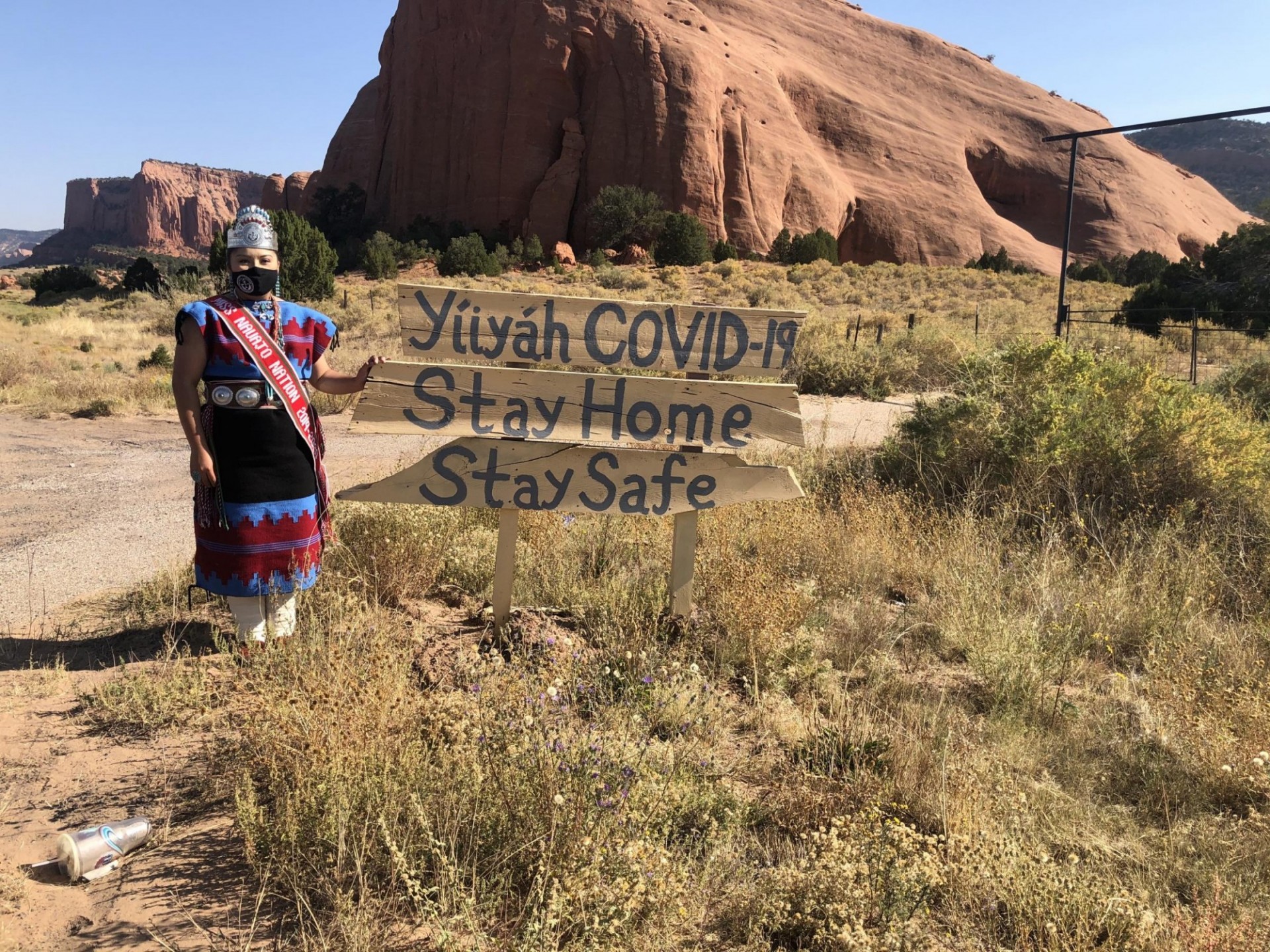
Miss Navajo Nation Shaandiin Parrish, Navajo Nation, Ariz. / Credit: Rita Omokha
Q: Three states in one day? Was 30 states in 32 days intentional or a targeted feat once you hit the road?
Yeah, those days felt never-ending but always productive — when I was on, I was on. I never felt the physical or mental exhaustion until I plopped down somewhere just to catch my breath and connect with my thoughts. I pitched the project with a proposed release date before Election Day. When I left on September 12, that was what informed my decisions. I had this urgency and focus on getting it done efficiently without compromising quality time in each place. I would look at a map and strategically figure out how many states I could do in a day to return in time to accomplish that goal while also attempting to speak with as many people from as many places as possible.
Q: What did you hear from the people of color that you interviewed?
The general sentiment is that Black people are ambiguously free — we're free with an asterisk. Because of our skin color, we can’t walk down any street in America and feel safe or genuinely seen. We can’t walk down any street however we want: Are we in the right outfit? Does this shirt, hoodie, hat make me look threatening? Unapproachable? Because of this Black skin, everything is a calculation. We second guess and over analyze ourselves with an unfair, critical eye that the system of America has put into place. It’s a vicious and perpetual stereotype that has been built up over the years that we can’t seem to escape. Even when we’re good, none of it matters. Before white America even gets to know us, they prejudge who we are: We're unintellectual. We’re gang members. We sell drugs or are affiliated with drugs in some way. We’re loud.
Q: Did the white Americans you spoke to see systemic racism as a problem?
Generally, no. An older, white couple in Kenosha, that's all we talked about. The man told me he didn’t believe systemic racism was an issue in America. He said, “Look at Obama. He made it.” There was this other woman in Sioux Falls who said something similar: “Well, look at Michael Jordan, if he can make it…” It was as though their lived experiences ended up with them having this narrow view of Black America that was a model list of the Obamas and Jordans of the world. That those struggling in systemic oppression somehow choose to remain subjugated.
Now that same man in Kenosha, his wife had a different perspective because her granddaughter recently came out as transgender. With a tangential experience in dealing with another kind of other, she started to see how marginalized people may feel about themselves in America.
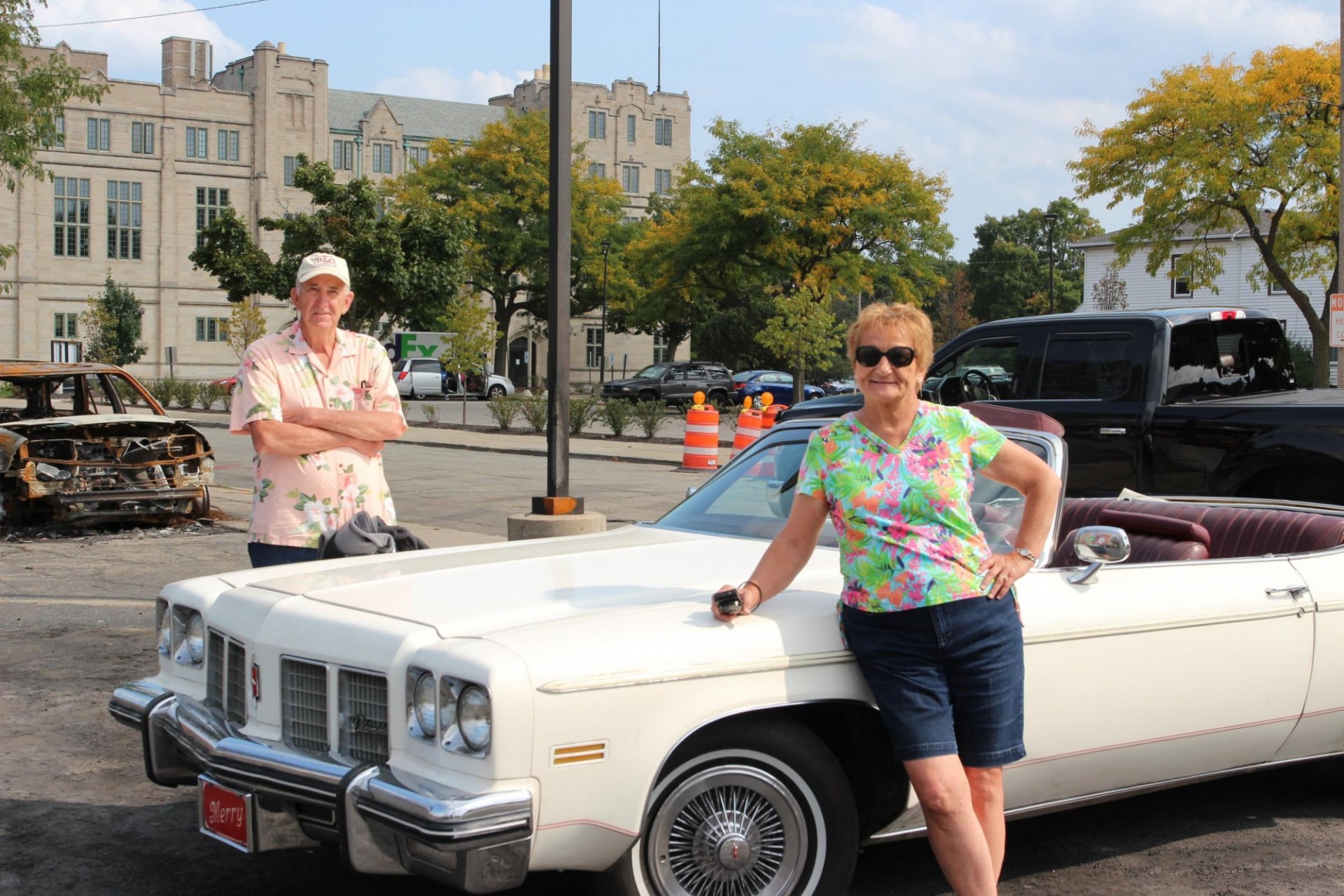
Q: You reported from the protests in Portland. What did you see there?
It's one thing to watch it on TV. It's one thing to see how the different media outlets cover it. But when you're there, you feel the intensity, the pain. People are crying, people are hugging each other. The protest I attended was for yet another Black man murdered by police two years ago that day in Portland: Patrick Kimmons. The beautiful thing was that young people led it: 14-, 15-, 16-year-olds. They were out there fighting this fight because they felt their lives literally depend on it. I was in awe of their passion and how aware they were. At that age, I don’t recall being that conscious of this skin and the danger it presented, or how I was a target because of it. So, there was that reckoning within myself. It was the first time on the trip I felt undone.
One teenager who addressed the crowd that night talked about her father, how sometimes when she's driving in the car with him, and a cop pulls them over, she's the one who speaks because she feels like she can protect him more. I thought, No 16-year-old should be thinking about this. No 16-year-old should carry that burden. How is this America?
I thought about race, like how it’s this social construct that’s been talked about for centuries. Yet, we’re still living in its ripple-effects, still living in the same madness today — just trying to survive in this racial hierarchy that turns a blind eye to white supremacists but normalizes the killing of Black men and women. That tells us all we need to know about the system of America. We’re so desensitized to it, numb beyond comprehension, to the point where we’ve come to expect it: Oh, a Black man got pulled over by police? Did he make it out alive?
Q: What kind of political sentiments did you find among interviewees?
Exhaustion. With everything 2020 threw at us, politics was an added mess no one wanted to spend mental power on. People were out there trying to feed their kids, pay rent, contend with continued isolation because of COVID and the mental health issues that come with that, some dealt with losing a loved one and maybe not having a proper funeral, and then as if that wasn’t enough, people also had to figure out how to be both parent and now teacher?
The political in-fighting and overall chaos had people feeling like, “No, thank you,” with a dash of, “Let’s survive this year and get that man out of office.” Some simply said, “I'm just so tired of Trump.” And to be fair, I cannot recall anyone who was excited about Biden across the board: Black America, Hispanics, Indigenous, White America, no one. The general feeling was, “I'd rather have this normal, decent human being than this evil, white supremacist.”
Q: Did any of the people you spoke with support President Trump?
My Texas and Florida stops come to mind. In the Dallas-Fort Worth area, there was a Hispanic man, Pete, who created the hashtag #LotsaGaysBackTrump and was really involved and passionate about getting the word out about Trump. He was a gay, conservative Christian — when he told me that, he added, “We exist.” He was very big on his faith, and that was one aspect that drew him to Trump. He felt Trump embodied all of the things he and his family had long believed in — like the idea of pulling yourself up by the bootstraps. I found him very interesting and memorable.
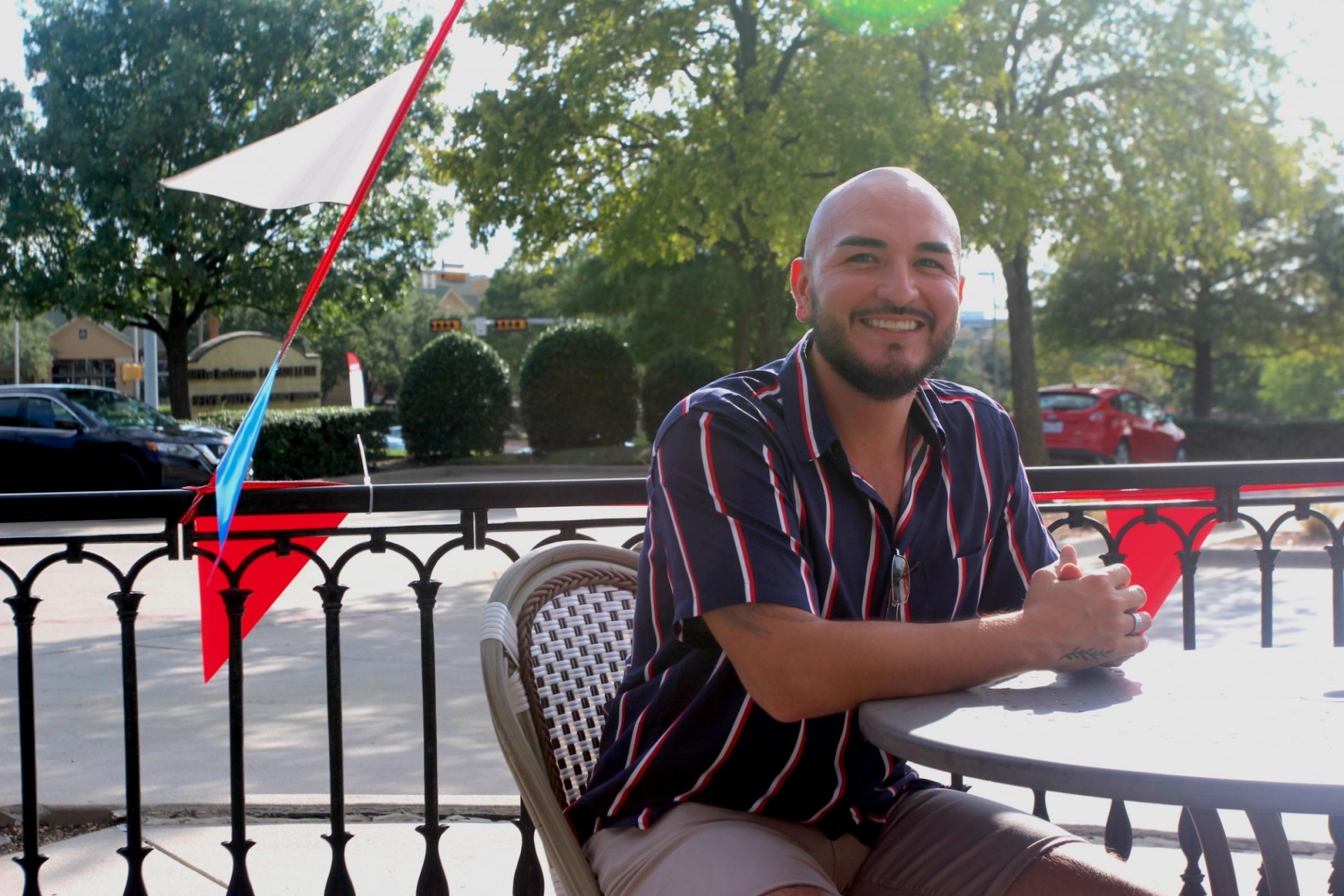
In Florida, in the Miami-Dade area, I spent the day with the Blacks for Trump group as they canvassed suburban areas. Interesting thing was the area we went to was predominantly white and affluent. Moments into canvassing, we found out that one of the neighbors called the police on the group when cops descended on us. As we left, one of them said, “If they knew we were here for Trump they wouldn’t have called the cops.” Another interesting and eye-opening encounter.
Q: Would you have done anything differently?
If timing weren’t a constraint, I would’ve attempted all 50 states and taken more time at each stop. At some stops, I always wanted to go to different areas. I thought about how, for example, the Upper East Side and the South Bronx in New York are night and day in many ways. Delving more into those varying views within the same city would’ve shed more light on how siloed cities can be, which, in general, is emblematic of the makeup of America. That was always top of mind.
Other than that, no. The trip turned out exactly how it was meant to turn out. I don’t think I’ve fully decompressed. There are days I’d vividly remember an encounter or feel the way I felt at an emotionally charged moment. Then there are moments of gratitude thinking about everyone that graced me with their time. There’s something really beautiful and enriching in spending time and really taking in a stranger. I always looked forward to going on each of their journeys — learning about them, the experiences that formed their identity, their struggles. All those things that make us who we are. It’s amazing the stories we’d find if we did that more.
Read Part Two of the Q&A, in which Rita Omokha expands on what she uncovered on racial experiences, shares how it impacted her and dives deeper into her powerful journey across America.